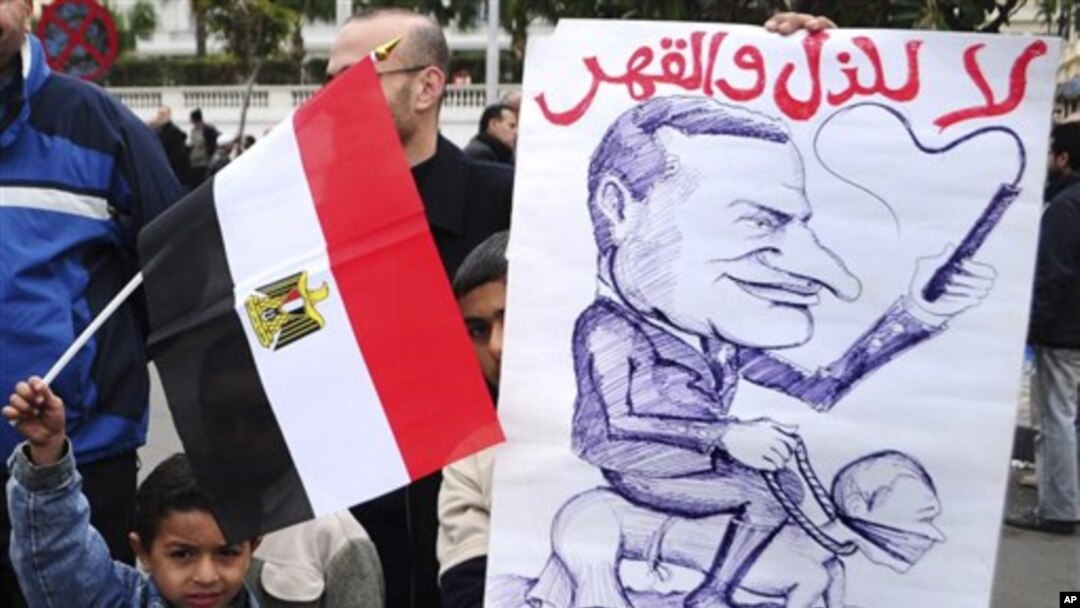The popular uprising in Egypt should serve as a warning to long-time Arab and African leaders, says a University of South Africa professor.
Shadrack Gutto, director of the university’s Institute for African Renaissance Studies in Pretoria, says, “One would have wished that the leadership in Egypt took a cue from what happened in Tunisia to be able to really say when you have such a spontaneous uprising, which cuts across various classes, subgroups and so on, it’s very difficult to stand it down.”
Face of repression?
Gutto says the demonstrations represent those who see Egypt as a “repressive state. And the president is a symbol of that. He then personifies those acts of repression, like torture and so on.”
The Egyptian economy and the country’s high unemployment rate, he says, are other driving forces behind the protests.
“There are those that are out there primarily expressing their frustrations,” he says, “And I think it is only reasonable for those who have been in power to indicate they have not found a proper solution and let Egyptians choose new leaders.”
Some Arab and African leaders have remained in power for decades, similar to or longer than President Mubarak. One example is Libyan leader Muammar Gaddafi.
“The social composition in Libya is not quite the same as those in Tunisia and Egypt. And maybe there won’t be an immediate uprising, but they are learning lessons. And therefore one cannot say sooner or later we will not see some fundamental changes there,” he says.
He gives Cameroon and Uganda as examples of countries in sub-Saharan African countries that have long-time rulers.
“I believe that those leaders may be beginning now because of the uprisings in Tunisia and Egypt that their strategy of thinking that they are indispensible to their countries – that they’re going to think quickly and move out before they are faced with (a) similar uprising, popular uprising. So I don’t think that leaders who cling to power in any part of Africa ought to be feeling comfortable anymore,” says.
Professor Gutto says he’s not surprised by democratic stirrings in the Arab world.
“If you look at places like Yemen, it has a population which is fairly mixed with Arabs (and) Africans. They took a…very quick cue from what was going on in Tunisia and…Egypt. [In] Jordan, there were beginnings of rumblings and people’s dissatisfaction. But there other parts of the Middle East where they have to think very, very carefully, particularly the kind of monarchical regimes that are there in Saudi Arabia, various emirates.”
Those countries have ruling classes that may believe that “they are anointed by ancestors or by God to be in power,” he says, “They ought to be quite worried. People are beginning to realize that they do have power when they unite.”
Mubarak
Demonstrators have demanded that President Mubarak step down. But would that end the turmoil? Gutto says, “Mubarak has become the symbol of state repression…corruption…cronyism and so on. And from that point of view, his stepping down would really be something useful at this particular moment.”
He adds that President Mubarak “shouldn’t pretend that if he were to leave there would be total chaos in Egypt. It is not only him who holds Egypt together.”


